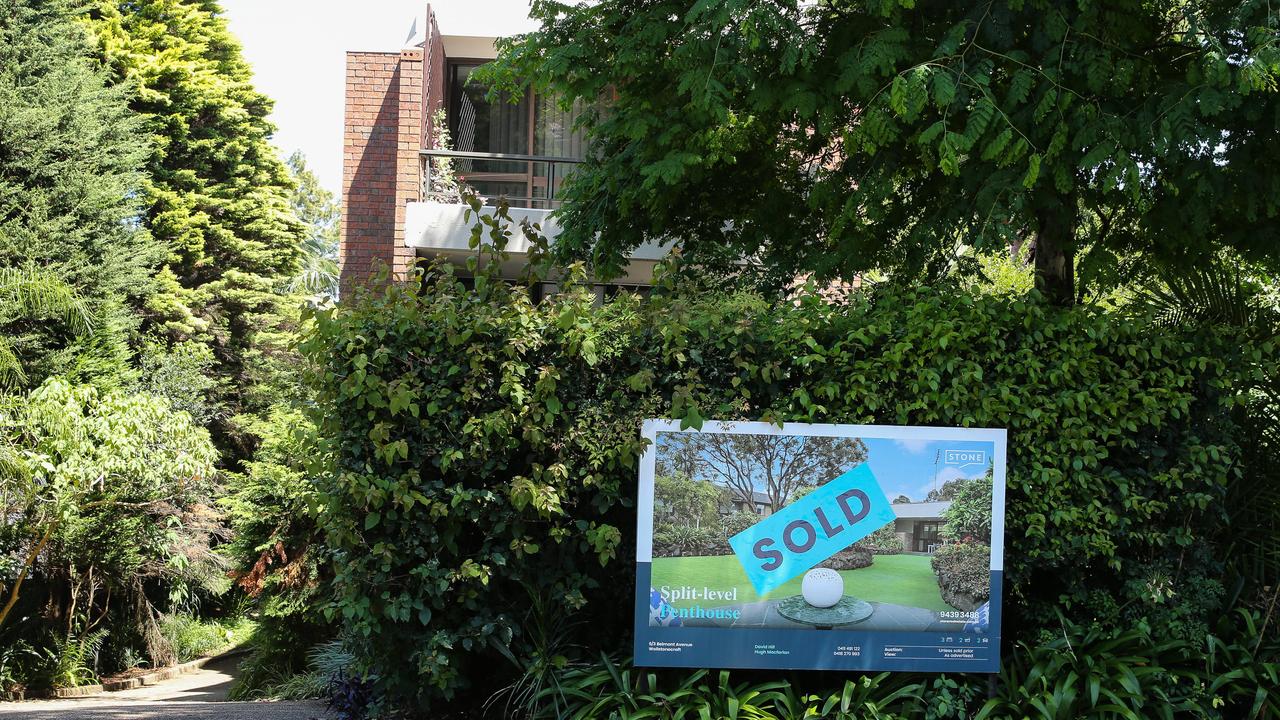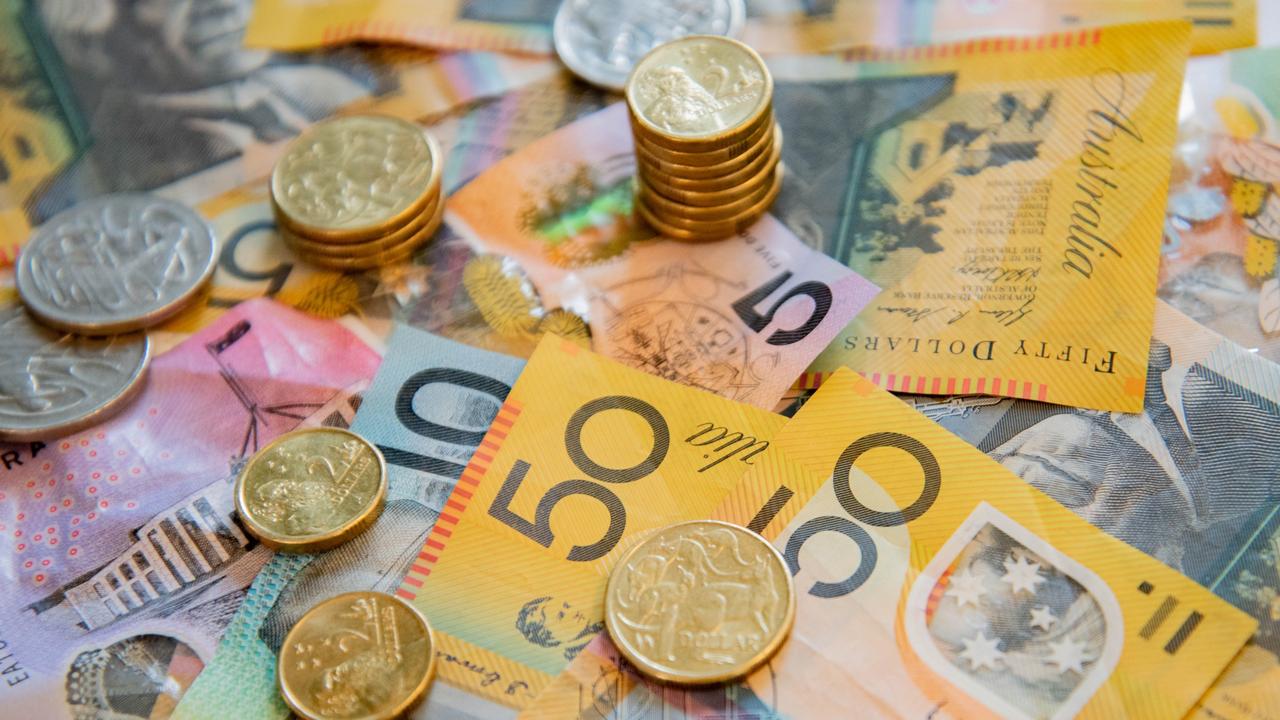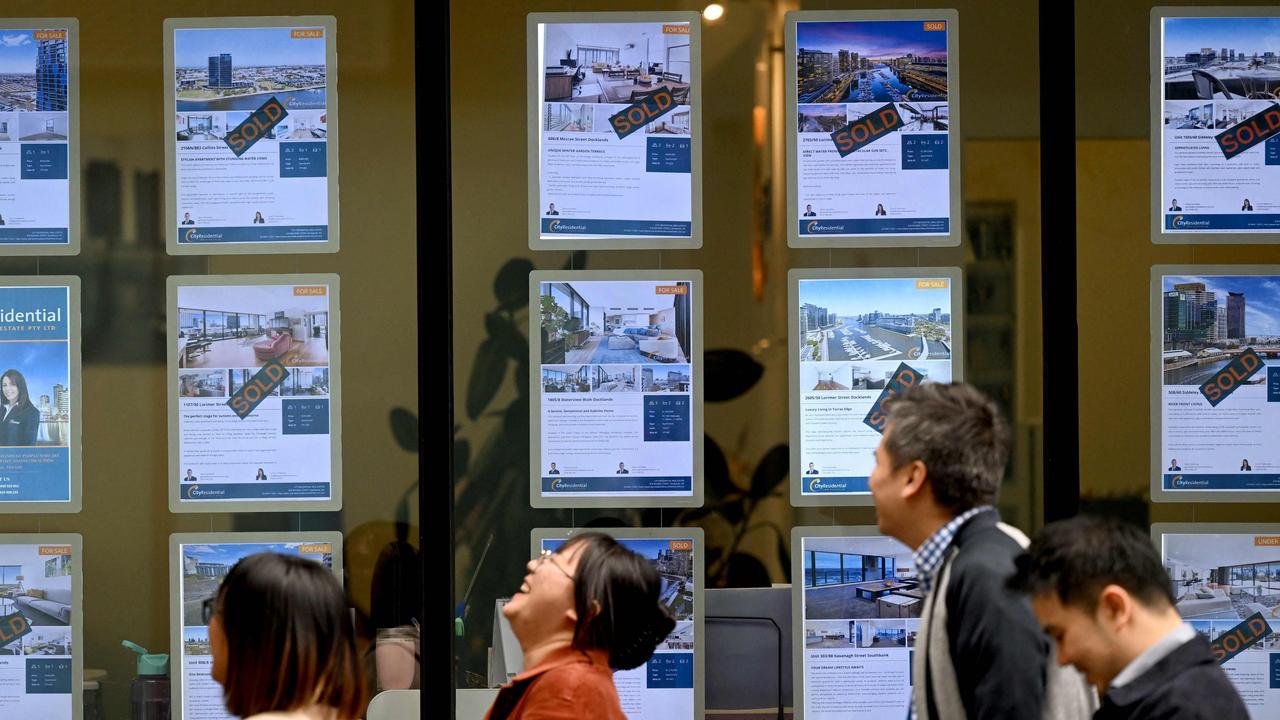Mortgage holders $141b refinancing ‘avalanche’ as fixed-rate home loans expire
Australians have been hit by the cost of living crisis with one major expense set to explode in coming months.
An avalanche of refinancing is expected in the coming months after 10 hikes sent interest rates skyrocketing with Aussies scrambling to find a better deal due to a whopping $141 billion worth of fixed rate mortgages set to expire.
The number of loans being refinanced was 22.8 per cent higher at the end of last week compared to 2022 and second only to a record level from December, according to data from online property exchange Pexa.
The big four banks have $141 billion in fixed-rate loans due to expire in the six months to September, Morgan Stanley analysts found.
The refinancing boom will be playing out at a record rate with one in five mortgage holders expected to see their fixed rate home loan end in the next three months, according to Aussie Home Loans.

The fixed rate cliff is predicted to peak in September this year with half of mortgage holders ultra low rates expiring, it added.
With a record number of Aussie borrowers home loan hopping for a more competitive deal, many lenders are offering cashback incentives to those willing to make the switch to aggressively lure new customers in.
Cashback offers can be a fast-track way to get some repayment relief, according to research from Canstar.
It found a borrower with a $500,000 loan taken out at the average variable rate of 2.98 per cent in April 2022 is now likely to be repaying their loan at a rate of 6.48 per cent, with their repayments rising by $1051 or 50 per cent to $3154 per month.
By refinancing and securing a $4000 cashback incentive deposited into the loan, the borrower could cut their monthly repayments by $412 down to $2742.
After the first year, the borrower also could have saved around $6666 in interest.

Switching to the lowest variable rate in the market, which currently sits around 4.95 per cent could see the same borrower cut their repayments by $485 per month to repay only $2669.
Canstar’s editor-at-large and money expert, Effie Zahos, said its possible to refinance to a lower rate loan and get the added bonus of a cash incentive to put towards your loan.
“For some mortgage holders, the lower rate will be a windfall in itself and the cashback provides homeowners the option of putting the money back into their loan, providing repayment relief, or using it to help out on household bills,” she said.
“Borrowers with loan sizes of $1 million might be eligible for cashbacks offers of up to $5000 while those with $2 million loans may be able to secure cashbacks of up to $10,000. A homeowner with a loan size of around $500,000 could still secure a cashback deal of around $4000.
“Chasing cashback deals can be a great way to inject some much needed cash into your budget and, if the rate is sharp, a good way to fast-track some repayment relief. But let’s not underestimate the benefits of switching to a really low rate regardless of whether there is a cashback deal on offer or not.
“We know that a record almost $20 billion in property loans were refinanced to new lenders in February alone, according to the latest Australian Bureau of Statistics lending data.”

Almost half of New South Wales mortgage holders have refinanced since January, marking a total of $422.5 million refinanced, according to Aussie Home Loans, followed by 22.75 per cent of Queenslanders and 19.5 per cent of Victorians.
The Reserve Bank of Australia found nearly 900,000 Australians who took advantage of cheap home loans during the Covid pandemic will be moved on to much higher rates this year.
One Queensland family is facing an extraordinary $1200 a week jump in their repayments, while a Gold Coast family were extremely stressed about where they would find the money to keep up with increased mortgage payments.
However, some Australians are mortgage prisoners and are unable to renegotiate their interest rate or switch banks – potentially as a result of a drop in house prices or not having enough equity in their home – with the RBA estimating 16 per cent of customers were in this position.

Previously, a chilling warning was issued that some Australians could be “forced into selling their homes” after a regulator refused to budge on a key issue influencing bank’s interest rates decisions.
The Australian Prudential Regulation Authority (APRA) refused to lower its buffer and will continue to insist that banks add 3 per cent on top of the prevailing interest rate when assessing mortgage applications.
The move not only hits the average new homebuyer, who will miss out on $21,000 in extra borrowing power according to Canstar research, but it means homeowners could also be trapped in “mortgage prison”.
The Finance Brokers Association of Australia (FBAA) said the announcement by APRA that the current serviceability buffer would be maintained makes it even harder for mortgage holders to refinance and negotiate a better rate.






